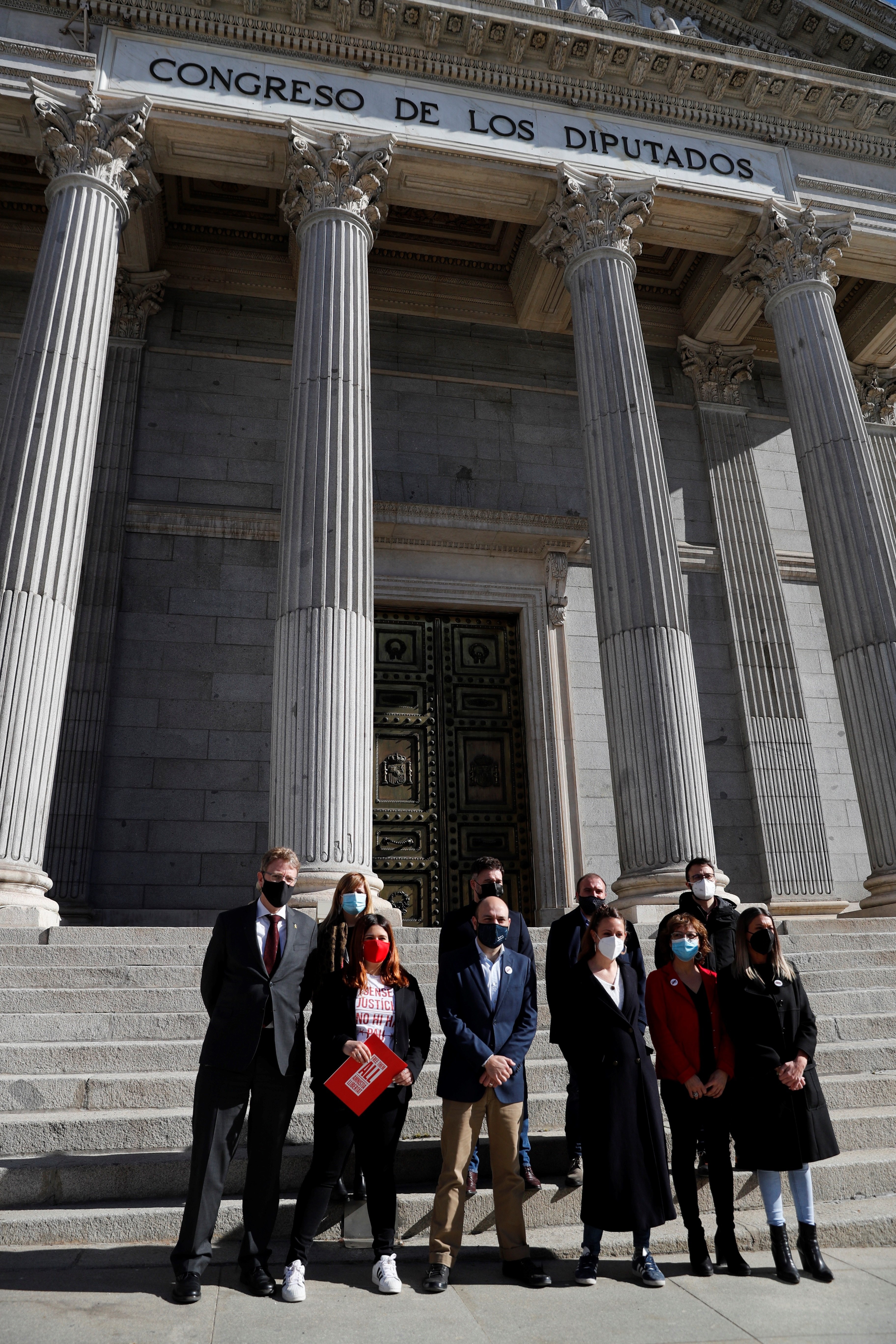For the second time, the Bureau of Spain's Congress of Deputies has today considered the Catalan bill proposing an amnesty for the pro-independence prisoners, exiles and those facing legal action. And it has received a second door-slam from the procedural body of the lower house. The Bureau certified its veto of the initiative, which has not even been accepted to move forward as a parliamentary bill and thus has no chance of being debated by Spanish MPs. Once again, the same three parties - the governing Socialists (PSOE), the main right-wing opposition party (PP), and far-right Vox - have combined their votes to throw out the request for reconsideration that had been registered by the pro-independence parties. The members of Unidas Podemos once again were the only ones who didn't reject the bill outright. Now there is only the right of petition remaining for this twice-rejected bill, and that does not seem likely to succeed either.
The first to speak out against the Bureau decision were the pro-independence parties. ERC spokesperson Gabriel Rufián accused the Congressional body of becoming a “second Constitutional Court”, and warned that although the vetoes are now directed against the independence movement, in the not-too-distant future they might target the Spanish left, as has been seen in other cases. From the Junts party, spokesperson Míriam Nogueras stated that "the dynamic of the Congress is that it cannot be debated, nor can it be admitted for processing". Faced with this, Nogueras said that the next step is to "form a strong pro-independence government" - making references to the difficult investiture negotiations continuing in Catalonia. The CUP was in favour of trying again through the right of petition.
The report of the parliamentary lawyers, opposed to the admission of the bill, paved the way for the Socialists to reject it. The legal services argued that “a preliminary examination shows that the initiative, assuming the granting of a general pardon affecting a plurality of subjects convicted by a final sentence, would enter into a clear and obvious contradiction with article 62 of the Constitution". Article 62.1 of the Spanish Constitution establishes that it corresponds to the king "to exercise the right of pardon in accordance with the law, which is unable to be used to authorize general pardons". This is the same argument that the PSOE made to reject the initiative before it was even registered in Congress: that it "doesn't fit in the Constitution."
Inspired by that of '77
The amnesty bill registered by the Catalan pro-independence parties took as its reference the Spanish amnesty law approved in 1977, but also other European experiences, such as that of France in the decolonization of Algeria. The first article of the bill made its scope clear: “All acts of political intentionality, whatever their outcome, classed as criminal offences or as conduct determining administrative responsibility, carried out since 1st January 2013, and until the entry into force of this law, are granted an amnesty." And it defined "political intentionality" as "any action linked to the democratic struggle for the self-determination of Catalonia". It covered both the first unofficial consultation on Catalan independence, held on 9th November, 2014 and the full referendum of 1st October, 2017.

